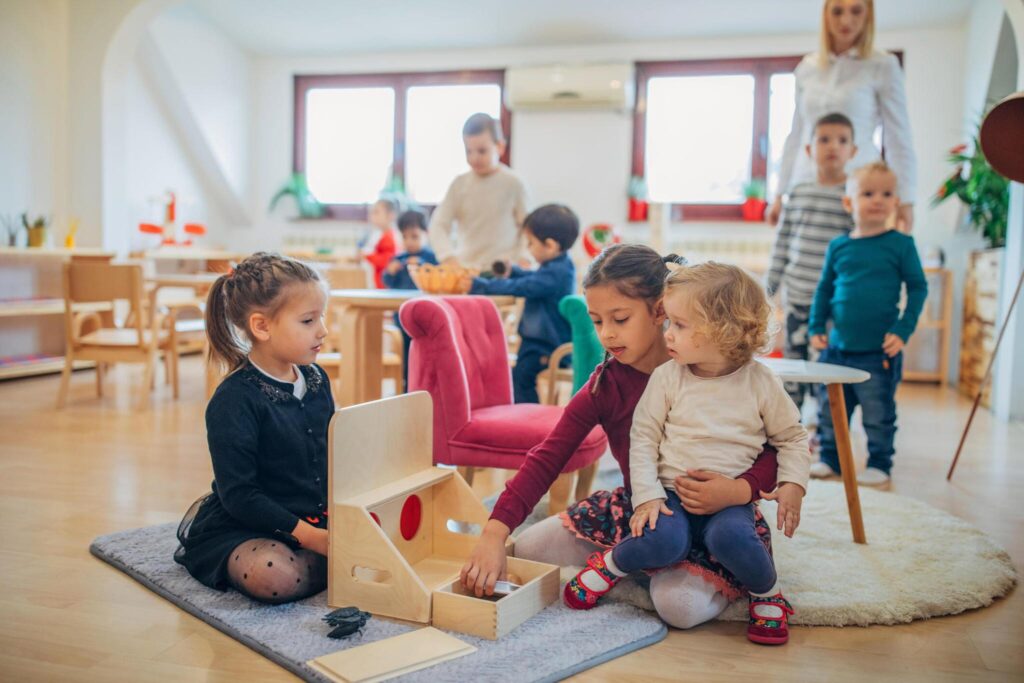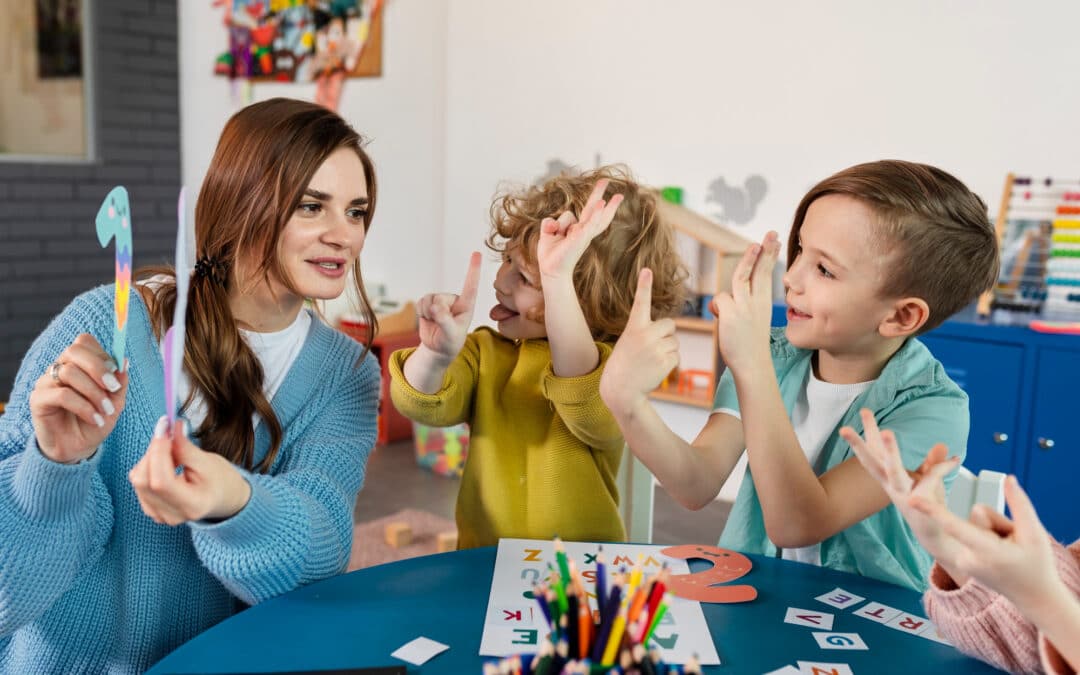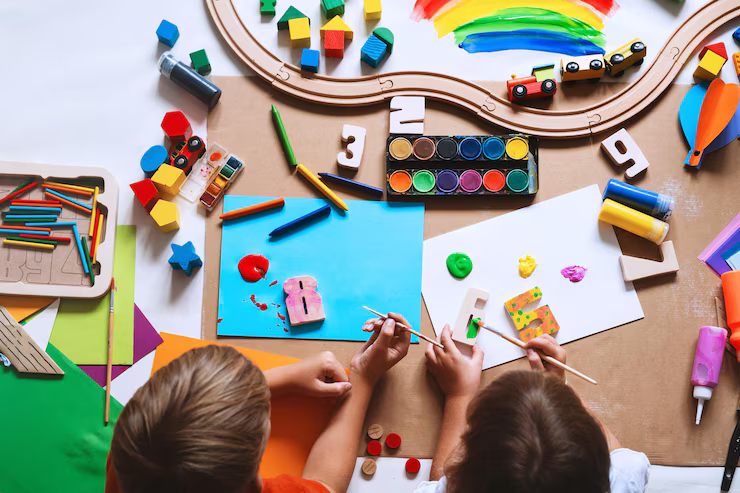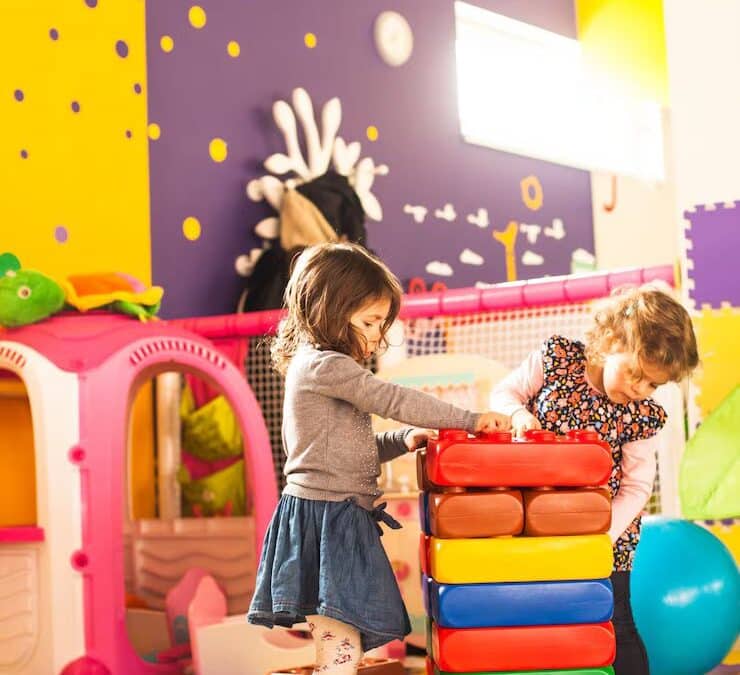Creating a nurturing and stimulating environment for toddlers is crucial for their early development. At Amici Montessori, a trusted daycare and preschool in Ahwatukee, Phoenix, we understand the significance of well-structured toddler lesson plans that cater to the unique learning needs of children aged 1 to 3. This blog will explore essential elements of effective lesson planning and provide insights into developing a comprehensive curriculum for toddlers in daycare. Whether you’re a parent looking for quality care or a daycare provider seeking resources, this guide will help you create a vibrant learning experience for young children.
Understanding Toddler Learning Needs
Toddlers undergo significant cognitive, social, and emotional development during their early years. They are naturally curious and eager to explore and develop essential skills through play and interaction. Understanding these developmental milestones is key to creating effective lesson plans for infants in daycare.
Key Developmental Milestones
- Cognitive Development: Toddlers begin to solve problems, recognize familiar objects, and develop memory. A cognitive lesson plan for preschool should include activities that stimulate critical thinking, such as puzzles and simple games.
- Language Development: Vocabulary expands rapidly. Incorporating songs, rhymes, and storytelling into your daycare lesson plans for toddlers encourages language skills.
- Social and Emotional Development: Interactions with peers help toddlers learn sharing, cooperation, and empathy. Group activities foster these essential social skills.
- Physical Development: Toddlers improve their gross and fine motor skills through active play. Lesson plans should include physical activities that promote movement and coordination.
By understanding these needs, daycare providers can tailor their curriculum for toddlers in daycare to foster growth and development.
Components of a Toddler Lesson Plan
Effective toddler lesson plans should encompass various elements that promote holistic development. Here are the key components to consider:
1. Objectives
Establish clear learning goals for each lesson. What do you want the children to achieve by the end of the activity? For example, an objective could be to enhance vocabulary through a storybook session.
2. Activities
Incorporate engaging and interactive tasks that cater to different learning styles. Here are some examples:
- Arts and Crafts: Simple projects that allow for creativity while developing fine motor skills.
- Storytime: Reading sessions that promote language development and comprehension.
- Outdoor Play: Activities that encourage physical movement and exploration of the environment.
3. Assessment
Measuring developmental progress is vital. Incorporate simple assessment methods, such as observation checklists or progress charts, to evaluate how children are meeting the lesson objectives.
Sample Lesson Plan for Toddlers
Theme: Colors
- Objective: Toddlers will be able to identify and name basic colors.
- Activities:
- Arts and Crafts: Create a color wheel using colored paper.
- Storytime: Read “Brown Bear, Brown Bear, What Do You See?” and discuss the colors in the book.
- Outdoor Play: Go on a color scavenger hunt to find objects of different colors.
- Assessment: Observe toddlers during activities to see if they can name colors correctly.
Creating a Curriculum for Toddlers in Daycare
A well-structured curriculum for daycare centers is essential for effective teaching. Here’s how to create a comprehensive curriculum for toddlers:
1. Define Learning Goals
Outline the primary learning objectives for the curriculum. Focus on key developmental areas such as language, cognitive skills, social-emotional growth, and physical development.
2. Thematic Units
Develop thematic units that engage toddlers. Examples include:
- Animals: Learn about different animals, their sounds, and habitats.
- Seasons: Explore the changes in nature throughout the year.
- Family: Discuss family members and relationships.
3. Daily Schedule
Create a balanced daily schedule that includes:
- Circle Time: Group discussions and introductions to new concepts.
- Free Play: Unstructured playtime for exploration and creativity.
- Structured Activities: Focused lessons and group activities that align with the theme.
4. Integration of Sensory Activities
Incorporate sensory play into your toddler learning curriculum. Activities such as sand play, water play, and sensory bins provide valuable hands-on experiences that promote exploration and discovery.
Tips for Daycare Providers
- Collaborate with other educators to share ideas and resources.
- Regularly review and update the curriculum based on the children’s interests and developmental progress.
- Use feedback from parents to refine lesson plans and enhance learning experiences.
Daycare Lesson Plans for Toddlers
Creating specific daycare lesson plans for toddlers is vital for delivering engaging and effective learning experiences. Here are some ideas:
Arts and Crafts Activities
- Objective: Enhance fine motor skills and creativity.
- Activity: Create finger paintings using non-toxic paints. Discuss colors and shapes during the activity.
- Assessment: Observe how toddlers manipulate the materials and express their creativity.
Storytime and Literacy Activities
- Objective: Promote language and comprehension skills.
- Activity: Read a story and ask open-ended questions to encourage discussion.
- Assessment: Evaluate toddlers’ responses to questions to gauge understanding.
Outdoor Exploration
- Objective: Foster physical development and sensory awareness.
- Activity: Nature walk to collect leaves and rocks. Discuss textures, colors, and shapes.
- Assessment: Observe children’s interactions and engagement with the environment.
Preschool Curriculum Ideas for 2-Year-Olds
When planning lessons for 2-year-olds, consider their developmental stage and unique needs. Here are some effective preschool curriculum ideas for 2-year-olds:
Interactive Lessons
- Theme: Animals
- Activity: Animal sounds game where toddlers mimic different animals.
- Objective: Enhance auditory discrimination and vocabulary.
Group Activities
- Theme: Colors
- Activity: Color sorting game with blocks or colored objects.
- Objective: Develop color recognition and fine motor skills.
Music and Movement
- Activity: Dance party with simple songs and movements.
- Objective: Promote gross motor skills and rhythm.
Resources for Daycare Providers
Developing an effective curriculum for daycare providers requires access to quality resources. Here are some recommended tools:
Books
- “The Whole-Brain Child” by Daniel J. Siegel and Tina Payne Bryson: Provides insights into brain development and practical strategies for teaching toddlers.
Websites
- Teaching Strategies: Offers resources and materials for developing lesson plans and curriculums.
Organizations
- National Association for the Education of Young Children (NAEYC): Provides guidelines and best practices for early childhood education.
Conclusion
In conclusion, developing effective toddler lesson plans and a comprehensive curriculum is essential for fostering the growth and development of young children. At Amici Montessori in Ahwatukee, Phoenix, we are committed to providing high-quality education that nurtures each child’s unique potential. By utilizing structured lesson plans and engaging activities, daycare providers can create a vibrant learning environment that supports toddlers’ cognitive, social, and emotional growth.
If you are a parent seeking a nurturing daycare or preschool for your child, we invite you to explore our programs at Amici Montessori. Join us in fostering a love for learning and ensuring a bright future for your little ones!












